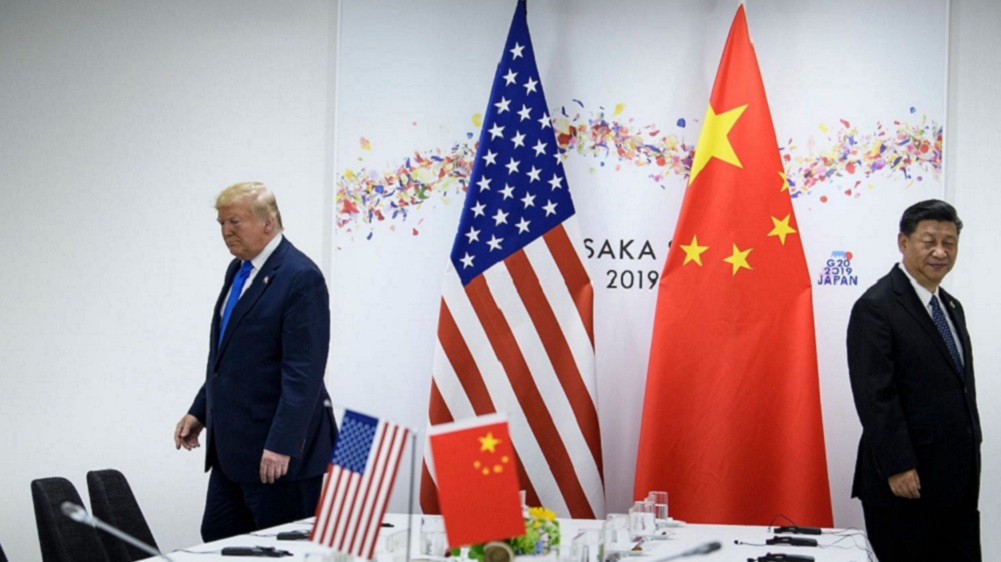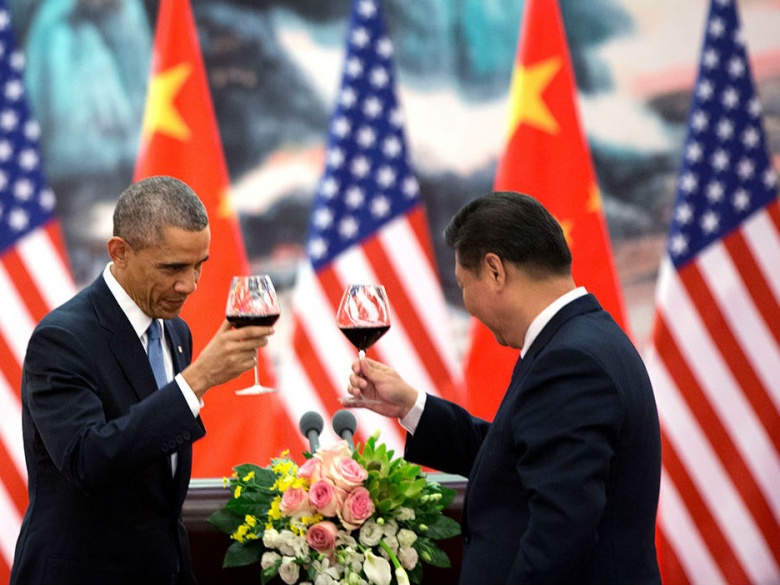Who is Number 1 in Corona Era
USA or China

The grim milestone came as President Donald Trump predicted the nation would get back to work "pretty quickly". but it is laughing to people.....
How did the White House react?
Asked about the latest figures at a White House briefing on Thursday afternoon, President Trump said it was "a tribute to the amount of testing that we're doing".
Vice-President Mike Pence said coronavirus tests were now available in all 50 states and more than 11,952,481(16th May) tests had been conducted nationwide.
- Trump says US tested more than S Korea - is he right?
"China has been through much & has developed a strong understanding of the Virus. We are working closely together. Much respect!" President Trump said.
Does the president still hope to ease restrictions?
Mr Trump has set a much-criticised goal of Easter Sunday, 12 April-2020, for reopening the country. That plan seemed to gather impetus on Thursday as it emerged an unprecedented 9.3 million Americans have been laid off because of the virus.
At Thursday's briefing, he said: "They [the American people] have to go back to work, our country has to go back, our country is based on that and I think it's going to happen pretty quickly.
"We may take sections of our country, we may take large sections of our country that aren't so seriously affected and we may do it that way."He added: "A lot of people misinterpret when I say go back - they're going to be practicing as much as you can social distancing, and washing your hands and not shaking hands and all of the things we talked about."What could he be planning?
In a letter to state governors on Thursday, Mr Trump said his team plans to release federal social distancing guidelines that may advise some regions to loosen restrictions.
Mr Trump wrote of a "long battle ahead" and said "robust" testing protocols might allow some counties to lift their safeguards against the coronavirus.He said the "new guidelines" would create low, medium and high risk zones that would allow the government to advise on "maintaining, increasing, or relaxing social distancing and other mitigation measures they have put in place".
- Trump knows economic meltdown brings political pain
- What this crisis reveals about US - and its president
The plan emerged as new research on Thursday estimated Covid-19-related deaths in the US could top 180,000 over the coming four months - even if people observe strict social distancing.
As many as 2,300 patients could be dying every day by April(in an average), according to the study from the Institute for Health Metrics and Evaluation at the University of Washington's School of Medicine.What's the reaction?
The Republican president's get-back-to-work goal found unexpected support on Thursday from a prominent Democrat.Governor Andrew Cuomo of New York, the current coronavirus epicenter in the US, said statewide quarantine orders may not have been the best approach to coronavirus.
"Young people then quarantined with older people was probably not the best public health strategy," he told a news conference, "because the younger people could have been exposing the older people to an infection."Mr Cuomo said a better way forward might be a "get-back-to-work strategy" in tandem with a public health strategy.
Public health experts on the White House task force have demurred when asked about reopening the country by Easter, suggesting the timeline should be "very flexible".
Can the president order everyone back to work?
On 16 March, he set a 15-day period to slow down the spread of Covid-19 by urging all Americans to drastically scale back their public interactions.But those guidelines were voluntary and did not amount to a national order.
The US Constitution makes clear states have the power for maintaining public order and safety, which scholars say means it is the responsibility of governors to decide when virus-related restrictions get lifted.Currently 51 US states have told residents to stay in their homes or ordered the closure of non-essential businesses in order to contain the pandemic.What's happening elsewhere in the US?
There were growing fears that Louisiana could become the country's next hot spot, with the governor warning that the state's biggest city, New Orleans, were out of ventilators by 2 April and potentially out of beds by 7 April.

"It's not conjecture, it's not some flimsy theory," John Bel Edwards told a news conference. "This is what is going to happen."Additionally, Dr Deborah Birx, the co-ordinator of the White House coronavirus response, said two other cities showed signs of rapidly rising new infections - Detroit, where the mayor described the situation as "really concerning", and Chicago.
In The Economic Sector ||
More countries currently see the United States as the world’s leading economic power than China. This is particularly true in Latin America and the Asia-Pacific region. Few name Japan or the European Union as the world’s leading economic power today.
But, while perceptions of current economic leadership are somewhat divided between the U.S. and China, when it comes to preferred global leadership, there is no competition. Majorities or pluralities in nearly every country surveyed say the future would be better if the U.S. were the world’s leading power than if China were.
U.S. seen as world’s leading economic power
The publics surveyed tend to believe the U.S. is the world’s leading economic power, albeit by a somewhat slender margin. Across 25 countries, a median of 39% name the U.S. as the top global economy, while 34% say it is China. Fewer say this about the EU or Japan.

America is seen as the leading economy in all three Latin American countries surveyed – Brazil, Mexico and Argentina. In the Asia-Pacific region, only Australians are more likely (52% vs. 35%) to name China as the world’s leading economic power. Australians have, in fact, consistently named China over the U.S. since the question was first posed in 2008.
In sub-Saharan Africa, publics in Kenya, Nigeria and South Africa are divided in their views: No more than four-in-ten name either the U.S. or China as the world’s top economy.
European opinion, too, is mixed. In the two Eastern European countries surveyed – Hungary and Poland – the U.S. is the clear favorite. In the Southern European countries of Italy and Greece, too, more name the U.S. than China. But in France and the UK there is no clear consensus; nearly as many point to the American as to the Chinese economy.
Meanwhile, in the Netherlands and Germany, opinion leans in favor of China. This is especially true in Germany, where about half (53%) view China as the world’s economic leader. Germans name the EU as often as the U.S. as the world’s leading economic power (21% vs. 19%).
Compared with a year ago, slightly more in the UK, France and Poland name the U.S. as the world’s leading economic power. By contrast, Germans are now less likely to see the U.S. as the globe’s dominant economy.
Regardless of which country people think is the current leading economic power, one thing is consistent: Most publics surveyed prefer the American leadership. When thinking about the future, a 25-country median of 63% say they prefer a world in which the U.S. is the leading power, while just 19% would favor one in which China leads.
In the Asia-Pacific region, few say they prefer China. Among China’s immediate neighbors, preference for the U.S. is particularly high: 81% of Japanese, 77% of Filipinos and 73% of South Koreans all favor a future where Washington, not Beijing, leads. In Australia – where 52% say China is the current leading economic power – nearly three-quarters still say they prefer a future where the U.S. is the world’s dominant power.
Argentina, Russia and Tunisia stand out as the only three countries where just one-third or fewer prefer U.S. leadership.

No comments:
Post a Comment